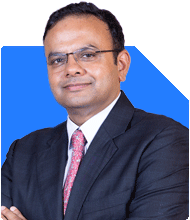14-Year-Old's Investment Portfolio: Is It Good?
Nitin Narkhede | Answer |Ask -Follow
MF, PF Expert - Answered on Sep 23, 2024
As a mentor, Nitin has trained over 1,000 individuals, many of whom have seen remarkable financial transformations.
Nitin holds various certifications including the Association Of Mutual Funds in India (AMFI), the Insurance Regulatory and Development Authority and accreditations from several insurance and mutual fund aggregators.
He is a mechanical engineer from the J T Mahajan College, Jalgaon, with 34 years of experience of working with MNCs like Skoda Auto India, Volkswagen India and ThyssenKrupp Electrical Steel India.... more

Hlo sir , I am a 14 year old lady and recently I have started an SIP of Rs 5000 per month through HDFC Bank MF advisor and my portfolio consists - HDFC mid cap opportunities fund regular growth plan Rs 1500 HDFC Top 100 growth - Rs. 1000 HDFC Multi cap regular plan growth - Rs. 1500 HDFC small cap-Regular plan growth Kindly analyse my portfolio. As I was new in this investment whatever was suggested by the advisor I did the same . Some of my friends later said that I should have used Grow app for the investment. Kindly clarify
within my Prosperity Lifestyle Hub community we share such topics to get our financial challenges resolved.
Best regards,
Nitin Narkhede
Founder & MD, Prosperity Lifestyle Hub https://Nitinnarkhede.com
Free Webinar https://bit.ly/PLH-Webinar
You may like to see similar questions and answers below
Nikunj Saraf | Answer |Ask -Follow
Mutual Funds Expert - Answered on May 24, 2023
Sanjeev Govila | Answer |Ask -Follow
Financial Planner - Answered on Jul 23, 2023
Abhishek Dev | Answer |Ask -Follow
Financial Planner - Answered on Oct 03, 2023
Ramalingam Kalirajan |10870 Answers |Ask -Follow
Mutual Funds, Financial Planning Expert - Answered on May 07, 2024
Dr Dipankar Dutta |1837 Answers |Ask -Follow
Tech Careers and Skill Development Expert - Answered on Dec 05, 2025
Dr Shyam Jamalabad |108 Answers |Ask -Follow
Dentist - Answered on Dec 05, 2025
Dr Shyam Jamalabad |108 Answers |Ask -Follow
Dentist - Answered on Dec 05, 2025
Dr Shyam Jamalabad |108 Answers |Ask -Follow
Dentist - Answered on Dec 05, 2025
Dr Dipankar Dutta |1837 Answers |Ask -Follow
Tech Careers and Skill Development Expert - Answered on Dec 05, 2025
Ulhas Joshi |280 Answers |Ask -Follow
Mutual Fund Expert - Answered on Dec 05, 2025
Dr Dipankar Dutta |1837 Answers |Ask -Follow
Tech Careers and Skill Development Expert - Answered on Dec 04, 2025
Ravi Mittal |676 Answers |Ask -Follow
Dating, Relationships Expert - Answered on Dec 04, 2025
Anu Krishna |1745 Answers |Ask -Follow
Relationships Expert, Mind Coach - Answered on Dec 04, 2025
Anu Krishna |1745 Answers |Ask -Follow
Relationships Expert, Mind Coach - Answered on Dec 04, 2025




























